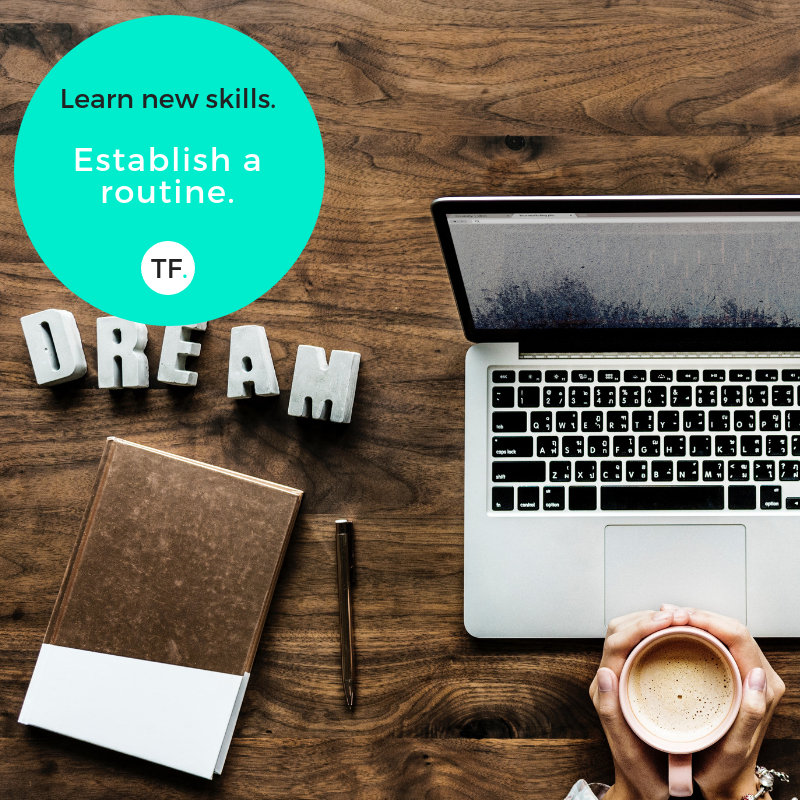Even if you don’t know exactly what you’ll need to learn, you can’t go wrong cultivating a growth mindset and embracing the idea that you’ll have to learn something new or acquire new skills. It doesn’t matter if you graduated from college last year or 10 years ago. To be able to advance in your career lifelong learning becomes part of your journey. With this blog post, we help you build the growth mindset to learn any skills you need for your career.

1. Ask yourself ‘Why you want to learn’ and do research
Before you start committing to a new skill, first ask yourself “why do I want to do this?” and then do research. How will this serve you and will you *enjoy it*. The best way to stay committed is to know the end game. Know the completion date, return on your investment, associated rewards, recognition and your why. By breaking down the goal in small chunks, you can celebrate every milestone you reach before the full completion.

2. Create a measurable, realistic goal
In the #technology arena, it’s mandatory to learn new skills constantly. So, before you start, establish your goal for that new skill or give a timeline. You need to apply discipline. A goal creates a game worth playing. It’s why people treat themselves when they hit a goal weight, or like certificates and rewards. Games and goals keep you motivated when it’s just you improving yourself. *BUT* you also need to honest and kind to yourself– how are you going to make time for this new skill? What will you trade-off?

3. Establish a routine to learn
Carve out a specific schedule for learning this new so you don’t let it slip. Perhaps you can wake up earlier? It doesn’t matter if it’s 30 minutes every day or 1.5 hours twice a week, as long as you stay committed and make sure whatever else might distract you is taken care of (by someone else or it can wait)– you’ll get there!

4. Do 30-day learning sprints
Decide what skill you want to develop, and clarify what success looks like at the end of 30 days. Then, immerse yourself. Set up daily reminders on your mobile, sign up to relevant Facebook groups and follow thought leaders on LinkedIn. Find a relevant course on Udemy and set aside one day to complete it. Spend time reflecting on what you’re learning. Then apply this to real-life challenges. Setting 30 days to do intense learning means you’ll have enough pressure to learn in those 30 days (less procrastination) and you’ll see results really quickly, keeping your motivation up!

5. Practice your skills in the comfort zone
Taking on a new skill is scary. When learning a new, difficult skill, try using that skill in lower-risk settings (with your spouse, kids, friends, at your club or church, etc.) rather than having to start in the most high-risk arena: in front of your team at work. The development and progress towards competence works just as well in lower risk arenas. Start there first!
Want to find out, how online learning can support you in mastering a new skill? Check out our post about Online Learning here.



0 Kommentare